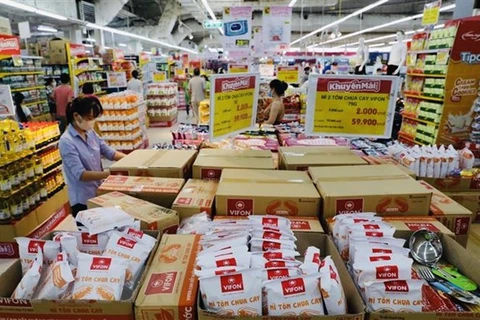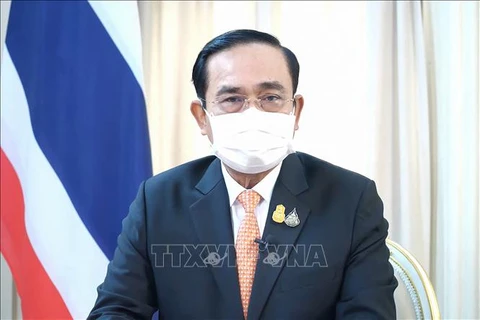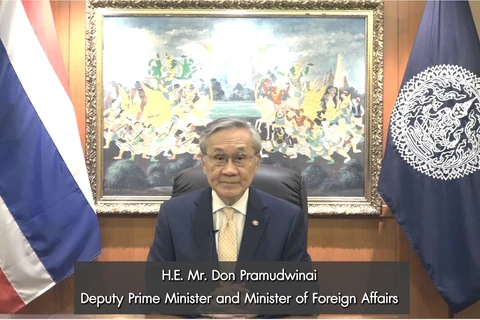Bangkok (VNA) – The Finance Ministry of Thailand has revised down its economic growth forecast in 2021 for the third time to 1.3 percent from 2.3 percent predicted earlier as the country is struggling with COVID-19.
On October 2020, the ministry reduced the rate from 4.5 percent to 2.8 percent and then 2.3 percent due to COVID-19 resurgence.
The country has been applying strict control measures in 13 provinces and Bangkok, with travel restrictions and the closure of trade centres and offices.
Fiscal Policy Office (FPO) Director-General Kulaya Tantitemit said that the current outbreak has affected economic and tourism activities of the country, but its exports have recovered.
He held that rise in export and fiscal encouragement policies will help the Thai economy avoid negative growth this year after a 6.1 percent drop last year.
The FPO has raised the country’s export prospect to 16.6 percent from 11 percent given earlier this year.
It expects the situation will improve in 2022 when the private sector resume normal operations, resulting in an economic growth of 4-5 percent. It predicted that 12 million foreign visitors will arrive in Thailand next year. Before the pandemic, the country welcomed nearly 40 million foreign tourists a year./.
On October 2020, the ministry reduced the rate from 4.5 percent to 2.8 percent and then 2.3 percent due to COVID-19 resurgence.
The country has been applying strict control measures in 13 provinces and Bangkok, with travel restrictions and the closure of trade centres and offices.
Fiscal Policy Office (FPO) Director-General Kulaya Tantitemit said that the current outbreak has affected economic and tourism activities of the country, but its exports have recovered.
He held that rise in export and fiscal encouragement policies will help the Thai economy avoid negative growth this year after a 6.1 percent drop last year.
The FPO has raised the country’s export prospect to 16.6 percent from 11 percent given earlier this year.
It expects the situation will improve in 2022 when the private sector resume normal operations, resulting in an economic growth of 4-5 percent. It predicted that 12 million foreign visitors will arrive in Thailand next year. Before the pandemic, the country welcomed nearly 40 million foreign tourists a year./.
VNA























